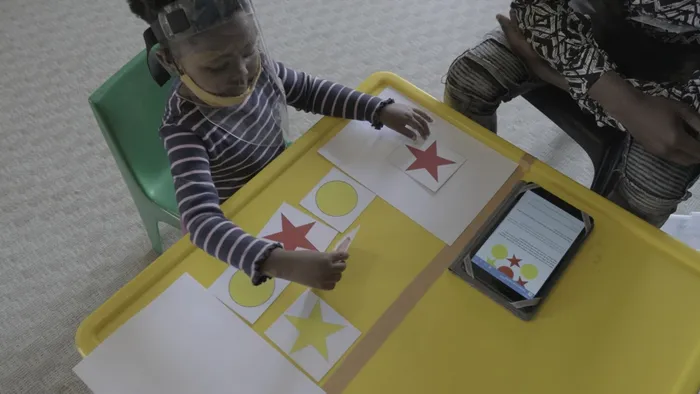Survey’s shock finding: More than half of SA’s preschoolers are not meeting learning or growth standards

Supplied image.
Johannesburg - Startling news from the largest survey of preschool child development done in South Africa has found that more then half of 4 to 5-year-olds are failing to thrive.
These children are not meeting the expected early learning and/or physical growth standards for their age – and will start Grade R at a considerable disadvantage, with possible long-term implications for their education.
The Thrive by Five Index, released this week, was initiated by First National Bank (FNB) and Innovation Edge, in collaboration with the Department of Basic Education (DBE). It is supported by the United States Agency for International Development (USAID) and research organisation ECD Measure.
The index assessed more than 5 000 children, aged from 4 to 5, enrolled in various types of early learning programmes (ELPs) around the country. Children were assessed in three areas known to be predictive of a child’s performance in school: early learning, physical growth and social emotional functioning.
Learning tasks assessed fall into five groups: gross motor skills, fine motor skills, early literacy, early mathematics and executive functioning, which is the child’s ability to solve problems and pay attention.
The index found that 55% of children attending ELPs were not able to do the learning tasks expected of children their age, with 28% of children falling far behind the expected standard.
Children’s physical growth – measured as their expected height for their age – and social-emotional functioning were also assessed. Both of these are important measures because they influence a child's ability to succeed at school and beyond.
One in four children (25.1%) showed signs of long-term malnutrition, which presents itself as stunted physical growth. Stunted children on average perform worse at school than their non-stunted counterparts, and are more likely to be unemployed as adults. They are also at higher risk of getting diseases such as diabetes and hypertension, and are vulnerable to being trapped in inter-generational cycles of poverty.
For social emotional functioning, the Index found that 27.5% of children did not meet the standard when it came to age-appropriate social relations with peers and adults, while 33.4% were found to not be emotionally ready for school. Children from poor households are disadvantaged before formal schooling starts.
The index also found that while there are instances of considerable variation in performance within income groups, on average children from poorer households are falling behind their better-off peers as a result of the challenges they face in their earliest years. Children thrive by age five when, from birth, they experience a nurturing and safe environment, and they have access to quality healthcare and nutrition, as well as opportunities for learning – both in the home and in ELPs.
The Thrive by Five Index partnership has called for urgent collective action to decrease the performance gap between young children in the richest and poorest households at the point of entry into school; and, to increase the percentage of young children in South Africa who thrive by five, setting more children up for success.
“The Thrive by Five Index has truly thrown into sharp focus the importance of the work of ECD in moulding and shaping the nation’s future leaders. Moreover, the index will enable the DBE to track progress in providing integrated services that lead to improved child outcomes over the next 10 years,” said Basic Education Minister Angie Motshekga.
FNB chief executive Jacques Celliers said ensuring that all children in South Africa are developmentally on track by the time they start school requires collaboration between multiple government departments, as well as the corporate and non-governmental sectors, community organisations and researchers.
“The value of this index is that it allows us as a collective to provide optimal support to our children as they progress from grassroots to greatness. Thrive by Five's actionable insights will influence targeted interventions that will result in quantitative and qualitative outcomes. As a result, it is incumbent on all stakeholders to ensure measurable progress in the coming years,” he said.
“South Africa will not realise its development goals of eliminating income poverty and reducing inequality without addressing the significant challenges that young children face in their earliest years. We have to tackle the injustice of unequal opportunities in early childhood,” said Sonja Giese, former executive director of Innovation Edge and Project Lead for the Thrive by Five Index.
Related Topics: